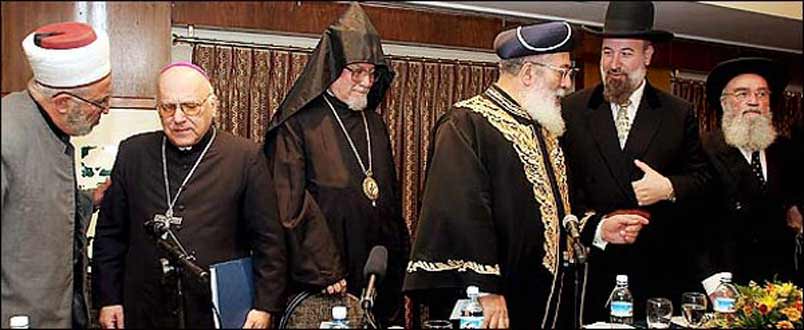 Belief & Religion
Belief & Religion
Inventing Sin: Religion and Homosexuality
Dec 1, 2005 No matter their own scandals, religious institutions through history have a consistent scapegoat: homosexuals. Larry Gross digs into why churches condemn gays to damnation. Religious institutions throughout history have a consistent scapegoat: homosexuals. Gross writes on why gays have been condemned to damnation. 1 2 3 4 5In his new role as pope, Ratzinger was immediately confronted with familiar challenges he had tackled as John Paul II's enforcer. Following Holland in 2001 and Belgium in 2003, Canada in 2003 legalized same-sex marriage. The Vatican immediately called this a distortion of God's plan for the family. However, the most dramatic blow to the Church's authority came in 2005 in heavily Catholic Spain, when the parliament joined other liberalizing nations in voting to legalize same-sex marriage. The Spanish parliament acted despite vehement opposition from the Catholic bishops, who had taken the unusual step of endorsing a "pro-family" demonstration in Madrid on June 18, and despite Pope Benedict's condemnation of gay marriage as an expression of "anarchic freedom" that threatens the future of the family.
All this occurred in the same time frame as charges were being leveled that the former Cardinal Ratzinger, in his role as church enforcer, had ignored and covered up charges of sexual abuse by priests. A lawsuit filed in Texas by three boys, alleging that a seminarian molested them during counseling sessions in the Church in the mid-1990s, accused the pope of having conspired with the Archdiocese of Galveston-Houston to cover up the abuse [AP, Aug.17, 2005]. Although the Vatican was served with papers in the suit, the U.S. State Department maintained that the pope, as a head of state, has diplomatic immunity from such lawsuits. Nevertheless, the revelations continue to emerge: It was reported that Ratzinger sent a confidential letter to his bishops in May 2001, asserting the Church's right to hold its inquiries of sexual abuse charges behind closed doors and keep the evidence confidential for up to 10 years after the victims reach adulthood. Lawyers representing abuse victims reacted to the revelation of the letter by accusing Ratzinger of obstructing justice, and the Vatican's refusal to comment on the letter is not likely to prevent further controversy.
Undeterred, the Vatican continues to evade responsibility for the Church's sad history of child sexual abuse by its priests by focusing on the hopefully distracting question of gay priests. In August 2005 it was revealed that the pope was considering a policy that would prevent gay men from being ordained as priests. The new "religious instruction," at the request of Pope John Paul II, was prepared by the Congregation for Catholic Education and Seminaries, the body overseeing the Church's training of the priesthood, and now confronts John Paul's successor with a controversial decision. In September 2005 the Vatican sent investigators to the U.S. to visit 220 Catholic seminaries and campuses; the investigators report directly to the Vatican, which could choose to issue the instruction barring homosexuals from entering the priesthood. Since a conservative estimate places the presence of homosexuals in the American priesthood at 15%, such a policy would be as drastic as it would be vicious, and it would ultimately be irrelevant to the ongoing problem of abuse by pedophiles and cover-up by Church authorities. The instruction was officially promulgated in the document released on Nov. 29.
Today, religious leaders and institutions play increasingly important roles on both sides of the cultural wars raging in the United States. Progressive clergy, often openly lesbian and gay, are reshaping rituals and beliefs and challenging their colleagues to evolve and adapt. On the other side, the religious right has been the engine of social and political reaction for the past three decades, and homosexuality has been among its most consistent targets. Catholic, Protestant, Jewish and Moslem fundamentalists have made common cause in their unrelenting hostility to lesbian and gay people's demands for civil and religious equality.


You need to be a supporter to comment.
There are currently no responses to this article.
Be the first to respond.